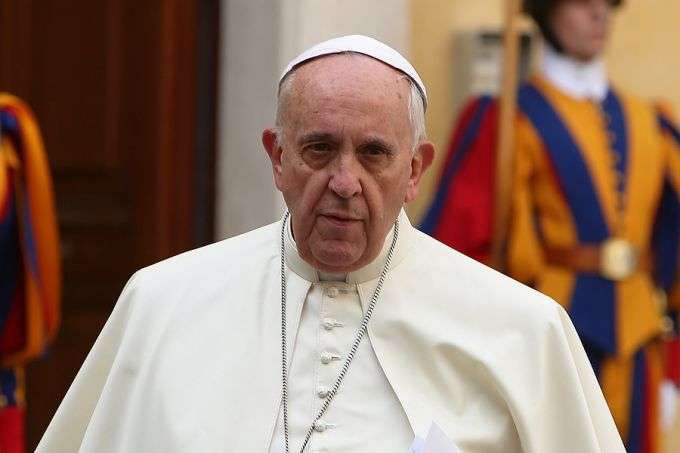As tensions and deaths continue to rise in Venezuela over the government's push to re-write their constitution, the Holy See has urged the country's leaders to hold off on the constitutional assembly, focusing instead on alleviating the nation's crippling humanitarian crisis.
“The Holy See expresses again her profound concern for the radicalization and aggravation of the crisis in the Bolivarian Republic of Venezuela, with the increase in the number of deaths, wounded and those who have been detained,” read an Aug. 4 Vatican communique.
Pope Francis, both directly and through Secretary of State Cardinal Pietro Parolin, “closely follows that situation and it's humanitarian, social, political, economic and even spiritual implications, and assures of his constant prayer for the country and for all Venezuelans,” while inviting faithful around the world “to pray intensely for this situation.”
At the same time, the Holy See asked all political actors, and governments in particular, to ensure that “full respect of human rights and fundamental freedoms” are respected, “as well as the existing Constitution.”
The Holy See asked specifically that political and governmental agents “avoid or suspend ongoing initiatives such as the new constitutional assembly which, instead of fostering peace and reconciliation, foments a climate of tension and conflict and mortgages the future.”
It also asked them to create the conditions “for a negotiated solution” in line with the requirements Cardinal Parolin spelled out in his Dec. 1, 2016, letter to the Venezuelan government, asking that: provisions be made to alleviate the crisis in the supply of food and medicine; that parties agree on a timetable for elections allowing Venezuelans themselves to decide their future; that the country's National Assembly be reinstated as soon as possible and its role provided for in the Constitution; and that legal procedures accelerating the release of detainees be implemented.
In addition, the Holy See also asked the government to bear in mind “the serious suffering of the people due to the difficulty of obtaining food and medicine, and a lack of security.”
The statement closed by making a “firm appeal” to society as a whole “to overcome all forms of violence, inviting, in particular, security forces to abstain from the excessive and disproportionate use of force.”
The statement comes days after July 30 nation-wide elections, which approved a constitutional assembly to reform the country’s 1999 constitution. However, some reports and members of Venezuela’s opposition have disputed the fairness of the elections, which were boycotted by the opposition.
Although the government claims that more than 8 million voters attended, the Democratic Unity Table, an organization monitoring the election, reported that only 2.4 million votes, or 12 percent of eligible voters, were cast, of which a quarter would have voted “no”.
Furthermore, in the days leading up to and following the election, uprisings and protests swept throughout the country. Conflicts between protesters and the country’s Bolivarian National Guard have resulted in the death of at least 15 people, including two minors.
The constitutional revisions have been rejected by the Venezuelan bishops for being not only “unconstitutional, but also unnecessary, inconvenient and harmful for the Venezuelan people.”
In a July 27 message, the bishops said Maduro's initiative “has not been convened by the people, has unacceptable commissions, and only the partisans of the ruling party will be represented there.”
“It will be a biased and biased instrument that will not solve, but will aggravate the acute problems of high cost of living, the shortage of food and medicines that suffer the people, and deepen and worsen the deep political crisis we currently face.”
Two opposition leaders, Leopoldo López and Antonio Ledezma, have been re-arrested following the vote.
Frustration in Venezuela has been building for years due to poor economic policies, including strict price controls coupled with high inflation rates, which have resulted in a severe lack of basic necessities such as toilet paper, milk, flour, diapers, and medicines.
Venezuela's socialist government is widely blamed for the crisis. Since 2003, price controls on some 160 products, including cooking oil, soap and flour, have meant that while they are affordable, they fly off store shelves only to be resold on the black market at much higher rates.
On Aug. 1 Cardinal Parolin addressed the situation with local Italian media, saying he and Pope Francis are “very committed” to seeking a peaceful solution to the crisis in Venezuela. The Vatican has been “seeking to help all, indiscriminately, and calling each person to fulfill their own responsibility.”
“The criteria should be only the good of the people,” he said. “The dead are too many and I do not think there are other criteria to follow that is not in the common good of the people,” he insisted.
With that in mind, the cardinal said that “it is necessary to find a peaceful and democratic way to get out of this situation, and the only way is always the same: we must find, talk, but seriously, to find a way to solution.”

